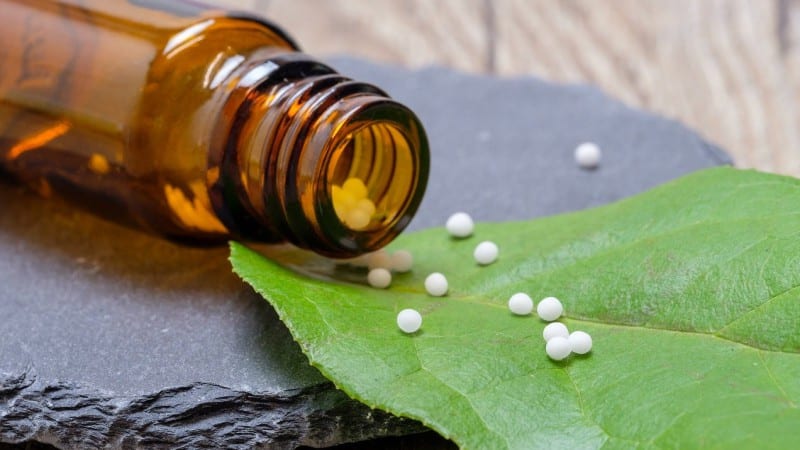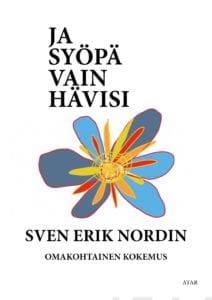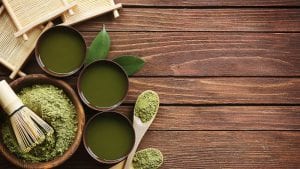The well-known and respected Finnish homeopath Jouni Jämsä (http://www.jounijamsa.fi/ ) continues his homeopathy research with us. In the first part, we talked to him about homeopathy in general and diluted homeopathic preparations in particular [1]. In the next section we investigated how plants respond to homeopathic preparations [2]. In the third part, we go through studies where homeopathy has been used for cancer patients.
Homeopathy for cancer patients
”Jouni, we continue our popular homeopathy reviews. What if we make cancer studies our next topic? Is homeopathy useful in treating cancer?”
Homeopathy utilizes the body’s own resources and homeopathic preparations, for example, strengthen the immune system. A strong immune system plays a very important role in the treatment of cancer. Therefore, homeopathy is widely used in the treatment of cancer and there is plenty of clinical research evidence.
Cancer is treated differently in established medicine compared to homeopathic methods. Both methods are needed to complement each other. For example, after cancer surgery and radiotherapy, the treatment can preferably continue utilizing homeopathic methods, since cytostatic drugs can lead to a patient poorly recovering from cancer surgery or cancer radiation due to an immune system not working properly. Homeopathic methods offer a gentle and effective solution for those who are recovering from cancer.
There are cancer clinics in Central Europe that use homeopathy to treat cancer. For example, the Paracelsus Clinic in Switzerland, Marinus am Stein and the Gisunt Clinic in Germany. In addition, homeopathy is provided by many individual doctors.
”I did some preparations. Jouni, when I performed a search in the database of the National Academy of Sciences (NIH) regarding which clinical examinations are available for cancer patients with homeopathic preparations, there surprisingly came out more hits than 0. In fact, there were a lot of surprisingly good homeopathic studies. Of course, there were also studies where the results were less promising, but that’s always the case in science. Would you be able to look at these studies to determine if homeopathy is an appropriate method for a cancer patient? Maybe you have more research available? ”
Yes, you did a good job. The literature search showed that there are many studies. The most recent study is from 2019. It tested whether the homeopathic combination drug Actheane relieves the condition of a breast cancer patient. In particular, relief was sought for the side effects caused by hormonal drug therapy, hot flushes. In a double-blind clinical study, there were no statistically significant differences between placebo and the homeopathic product. In the study, the homeopathic preparation was not effective enough to alleviate the side effects of hormone therapy in patients with breast cancer. However, the experimental preparation Actheane had a positive effect on the perceived quality of life for the patients. Thus, Actheane was not completely unnecessary, as better quality of life is certainly important for a cancer patient [3].
In a French double-blind clinical study, it was found that the efficacy of a homeopathic remedy for hot flashes was better than placebo. Patients received BRN-01 tablets, a homeopathic drug consisting of the following ingredients: Actaea racemosa (4CH), Arnica Montana (4CH), Glonoinum (4CH), Lachesis mutus (5CH) and Sanguinaria canadensis (4CH) [4].
Menopausal symptoms can be very extensive, especially for breast cancer patients who do not find hormone replacement therapy appropriate. At Tunbridge Wells Homeopathic Hospital in England, an uncontrolled pilot study was performed on breast cancer patients in 1998-1999. They were treated with homeopathy for hot flashes caused by menopause. The results were good. Homeopathy was useful [5].
Homeopathic treatment was offered at a private clinic in Seattle, USA, for the treatment of menopausal symptoms in women with breast cancer. This was a randomized, double-blind study of two homeopathic remedies that complemented cancer care. The women had undergone surgery, chemotherapy and radiotherapy. Homeopathic preparations proved their effectiveness. Homeopathy was helpful in treating menopausal disorders. The researchers wanted more extensive experiments and asked if, for example, hormone replacement therapy could be excluded and replaced with homeopathic remedies [6].
A homeopathic hospital in the United States experimented with individual homeopathy for nasty symptoms caused by breast cancer. This was a randomized double-blind study. When the results were reviewed, it could not be statistically confirmed whether the improved condition for some patients was due to homeopathy or whether it was merely a coincidence [7].
An Israeli clinical trial is currently underway for breast cancer patients in which the effectiveness of homeopathic remedies is being evaluated against fatigue following radiation therapy. Results have not yet been served [8].
More clinical studies
”It would be nice to get more information about the clinical studies combining conventional medicine and homeopathy. Do you have that kind of information?”
Clinical studies have shown that homeopathic medicines in combination with standard care improve the quality of life, reduce the burden of symptoms and potentially improve the survival of cancer patients. Several laboratory and clinical research findings suggest that homeopathy may have beneficial effects in the treatment of cancer. However, further extensive clinical trials are still needed to assure us of these beneficial effects [9, 10].
A study was published in 2014 at the Medical University of Vienna. 538 people were recruited. The criterion for being admitted to the study was cancer with a fatal prognosis. The participants had pancreatic, lung and breast cancer. The life span was determined according to the type of cancer in the participant. The results showed that those receiving homeopathic treatment had a longer life span regardless of the type of cancer [11].
A randomized controlled clinical trial was later conducted at the same university hospital to evaluate how 410 cancer patients could receive help from classic homeopathic supplementary therapy in addition to standard care. The patients’ general state of health was assessed and the perceived individual desire for life was collected through surveys. The results were collected from 373 patients. The overall health condition improved statistically significantly in the homeopathy group compared to the control group. A significant difference between the groups was also observed in the form of individually experienced increased joy of living in favor of homeopathic methods compared to the control group [12].
In the clinical treatment of advanced cancer, combinations of homeopathic drugs were tested in one study. These homeopathic agents significantly increased the number of natural killer cells (NK). The study summarizes the suitability of these homeopathic drugs for the treatment of immunity in cancer patients [13].
Recently, an interesting new method of cancer treatment with traditional homeopathic drugs was discovered. A team of Indian scientists has discovered that modern nanomedicine and alternative intervention strategies are a fascinating field of research. Homeopathic drugs can exert their anti-cancer effects through both external and endogenous (exosomal) signals from cell to cell using nanoparticles. The result may be a series of modulating biological events that provide cancer suppressive effects. This is the so-called Banerji protocol, which reflects a clinical system developed over several generations by Indian homeopathic doctors where thousands of cancer patients have been treated. Homeopathic preparations contained in the Banerji protocol (eg, Calcarea phosphorica; breast cancer tissue derived from a carcinogenic tumor in homeopathic preparation) overlap with the agents already studied in non-homeopathic exosomal cancer vaccination studies. Nanoforms are also found, for example, in these plant extracts: Phytolacca, Gelsemium, Hydrastis, Thuja and Ruta [14].
Effective for children
A study of children with cancer was conducted by the University Hospital in Bern, Switzerland in 2002-2011 and it is quite well known. The use of CAM therapies (supplementary and alternative therapies) in pediatric patients was looked at and the results were encouraging. The treatments used mainly came from a range of cures from the classic homeopathic. The reason for using CAM treatments was the parents’ idea to improve the patient’s condition. The most common reason why CAM treatments were not used was a lack of information. In 87% of cases, CAM treatments produced positive effects [15].
The Gemeinschaftskrankenhaus Herdecke in Germany, which specializes in anthroposophical treatments, sent a questionnaire to 1595 parents whose children had been diagnosed with cancer. Attempts were made to identify the occurrence of CAM treatments for children with cancer. According to the responses, 35% had used CAM treatments for their child, mainly homeopathy, nutritional therapy and anthroposophic drugs. The higher the educational level of the parents, the more frequently the treatments were used and the prognosis of the child’s illness was also affected. The treatments sought to strengthen immunity, suppress the disease state and improve the prognosis of the disease. The treatments were considered positive and 89% of those using CAM reported that they could recommend it to others [16].
References:
1 Christer Sundqvist. Scientific evidence for homeopathy part 1. 30.4.2020 https://www.petrafoundation.com/en/blog/scientific-evidence-for-homeopathy-part-1
2 Christer Sundqvist. Scientific evidence for homeopathy part 2. xx.5.2020 https://www.petrafoundation.com/en/blog/scientific-evidence-for-homeopathy-part-2
3 Pierre-Etienne Heudel, Isabelle Van Praagh-Doreau, Bernard Duvert et al (14 authors). Does a homeopathic medicine reduce hot flushes induced by adjuvant endocrine therapy in localized breast cancer patients? A multicenter randomized placebo-controlled phase III trial. Support Care Cancer 27(5):1879-1889, 2019 https://www.researchgate.net/publication/327517718_Does_a_homeopathic_medicine_reduce_hot_flushes_induced_by_adjuvant_endocrine_therapy_in_localized_breast_cancer_patients_A_multicenter_randomized_placebo-controlled_phase_III_trial
4 Jean-Claude Colau, Stéphane Vincent, Marijnen Philippe, Francois Allaert. Efficacy of a Non-Hormonal Treatment, BRN-01, on Menopausal Hot Flashes – A Multicenter, Randomized, Double-Blind, Placebo-Controlled Trial. Drugs R D 12(3):107-119, 2012 https://www.researchgate.net/publication/230593823_Efficacy_of_a_Non-Hormonal_Treatment_BRN-01_on_Menopausal_Hot_Flashes_A_Multicenter_Randomized_Double-Blind_Placebo-Controlled_Trial
5 Clover A, Ratsey D. Homeopathic treatment of hot flushes: a pilot study. Homeopathy 91(2):75-79, 2002 https://www.researchgate.net/publication/11089235_Homeopathic_treatment_of_hot_flushes_A_pilot_study
6 Jennifer Jacobs, Patricia Herman, Krista Heron et al (5 authors). Homeopathy for menopausal symptoms in breast cancer survivors: a preliminary randomized controlled trial. J Altern Complement Med 11(1):21-27, 2005 https://www.researchgate.net/publication/7984576_Homeopathy_for_Menopausal_Symptoms_in_Breast_Cancer_Survivors_A_Preliminary_Randomized_Controlled_Trial
7 Elizabeth Thompson, Alan Montgomery, Diane Douglas, David Reilly. A pilot, randomized, double-blinded, placebo-controlled trial of individualized homeopathy for symptoms of estrogen withdrawal in breast-cancer survivors. J Altern Complement Med 11(1):13-20, 2005 https://www.researchgate.net/publication/7984575_A_Pilot_Randomized_Double-Blinded_Placebo-Controlled_Trial_of_Individualized_Homeopathy_for_Symptoms_of_Estrogen_Withdrawal_in_Breast-Cancer_Survivors
8 Merav Ben-David. Assessment of Fatigue During Radiotherapy for Breast Cancer With and Without Homeopathy Treatment. Clinical Trial NCT02890316 https://clinicaltrials.gov/ct2/show/NCT02890316
9 Moshe A Frenkel. Homeopathy in cancer care. Alternative therapies in health and medicine 16 (3):12-16, 2010 https://www.researchgate.net/publication/44615294_Homeopathy_in_cancer_care
10 https://www.ncbi.nlm.nih.gov/pubmed/26210222 Frenkel M. Is There a Role for Homeopathy in Cancer Care? Questions and Challenges. Curr Oncol Rep 17(9):43, 2015 https://www.researchgate.net/publication/280447974_Is_There_a_Role_for_Homeopathy_in_Cancer_Care_Questions_and_Challenges
11 Katharina Gaertner, Michael Müllner, Helmut Friehs et al. (8 authors). Additive homeopathy in cancer patients: Retrospective survival data from a homeopathic outpatient unit at the Medical University of Vienna. Complement Ther Med 22(2): 320-332, 2014 https://www.researchgate.net/publication/261733979_Additive_homeopathy_in_cancer_patients_Retrospective_survival_data_from_a_homeopathic_outpatient_unit_at_the_Medical_University_of_Vienna
12 Michael Frass, Helmut Friehs, Christiane Thallinger et al. (10 authors). Influence of adjunctive classical homeopathy on global health status and subjective wellbeing in cancer patients – A pragmatic randomized controlled trial. Complement Ther Med 23(3):309-317, 2015 https://www.researchgate.net/publication/274095651_Influence_of_adjunctive_classical_homeopathy_on_global_health_status_and_subjective_wellbeing_in_cancer_patients_-_A_pragmatic_randomized_controlled_trial
13 Ioannis K Toliopoulos, Yannis Simos, Dimitrios Bougiouklis, Stergios Oikonomidis. Stimulation of natural killer cells by homoeopathic complexes: an in vitro and in vivo pilot study in advanced cancer patients. Cell Biochem Funct 31(8):713-718, 2013 https://www.researchgate.net/publication/235621711_Stimulation_of_natural_killer_cells_by_homoeopathic_complexes_An_in_vitro_and_in_vivo_pilot_study_in_advanced_cancer_patients
14 Iris Bell, Barbara Sarter, Mary Koithan et al. (7 authors). Integrative Nanomedicine: Treating Cancer With Nanoscale Natural Products. Glob Adv Health Med 3(1):36-53, 2014 https://www.researchgate.net/publication/261773133_Integrative_Nanomedicine_Treating_Cancer_With_Nanoscale_Natural_Products
15 Magi T, Kuehni CE, Torchetti L et al. (6 authors). Use of Complementary and Alternative Medicine in Children with Cancer: A Study at a Swiss University Hospital. PLoS One 10(12): e0145787, 2015 https://www.ncbi.nlm.nih.gov/pubmed/26694320
16 Laengler A, Spix C, Seifert G et al. (6 authors). Complementary and alternative treatment methods in children with cancer: A population-based retrospective survey on the prevalence of use in Germany. Eur J Cancer 44(15): 2233-2240, 2008 https://www.ncbi.nlm.nih.gov/pubmed/18809313
![]()



